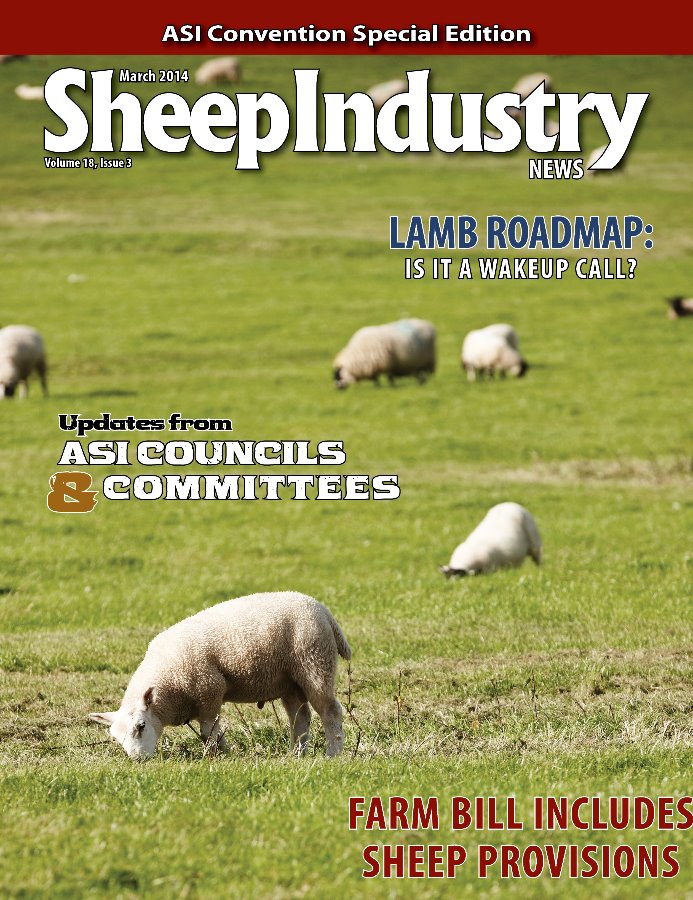
- March 2015
- President’s Notes
- Nearly 600 Participated in ASI Convention to Mark 150th Anniversary
- Smith: Animal Ag Needs to Protect Itself
- ASI Awards: Dedication to Sheep Industry
- Avalos Urges ASI to Support Livestock Reporting
- Wool Council Updated on Programs
- Wool Excellence: Mehta, Kott Honored for Service to Industry
- Market Report
- H-2A ‘Special Procedures’ Vital to Industry
- Breed Research Reported to PERC
- Legislative Council Shifts Spring D.C. Trip
- Let’s Grow Committee Begins to Build
- Pfliger Takes Reins as ASI President
- Buchholz, Ebert Elected to ASI Executive Board
- Stakeholder Committee Formed to Draft Sheep Station Defense
- Animal Health Updated on Bighorns, Scrapie
- Emerging Entrepreneurs Gain Momentum
- Sheep News Briefs
- Classified Ads
H-2A ‘Special Procedures’ Vital to Industry
ASI and sheep producers around the country spent the month of February preparing for rule making movement by the U.S. Department of Labor (DOL) on a section of the H-2A program that could drastically change the way ranchers are able to do business.
At issue are the “special procedures” portion of the H-2A Ag labor program, which refer to certain regulations that enable the employment of sheepherders, open range livestock herders and sheep shearers. The H-2A Ag labor program, created by the 1986 Immigration Reform and Control Act, mandates preference is given to U.S. workers while demanding very specific minimum wage requirements (above minimum wage), housing provision and standards and contract requirements. In addition to the H-2A regulations, the special procedures provide alternative guidance to permit for a salary wage versus hourly, a worker to be available when needed to address emergent issues (i.e. predators or lambing), an employer to have work sites in multiple grazing areas and provide mobile housing for workers in grazing situations.
Without the provisions in special procedures, many existing open-range herded operations will not exist as the cost of labor would become prohibitive, predator and lambing death loss would increase and grazing permits would become unusable. If an employer was not allowed to pay a salary wage, the task of tracking “hours worked” would not only be nearly impossible, the “on call 24/7” option would no longer be possible. It will no longer be possible to care for grazing bands of sheep without the ability to utilize mobile housing for workers as they would have to travel to grazing sites and return home each night – regardless of season.
By court mandate and for the first time, the DOL must publish the special procedures and establish them through the official rule making process. There is a fear in the sheep industry and livestock industry that the section could face new restrictions or removal of the current provisions, either option could have a serious impact on the sheep industry’s production abilities. It is estimated 30 – 40 percent of the industry’s wool production comes from open range herded operations.
Kelli Griffith, executive director of Mountain Plains Agricultural Services, has been working on the issue in support of farmers and ranchers who could be affected if changes are made to the H-2A program, Special Procedures. She said the rule was due to be published by March 1, but in late February the Department of Labor filed for an extension of the deadline, pushing it back to April 15.
A public comment period will follow.
Griffith said the two major concerns are that the DOL will drop current rules as it goes through the process of implementing new rules and that DOL will try to remove one or all of the critical provisions to the sheep industry. If the first happens, it would be bad news for those who currently employ herders through the H-2A program as well as those needing labor for next year’s lambing season. If the second concern is realized, it could mean the elimination of a labor supply for open range herded operations, the devastation of producers put out of business and the resulting loss of production capabilities will hurt the entire industry.
“Special procedures have not gone through rule making since their inception in the 80s,” said Griffith. “This is a challenge, but also an opportunity to contribute to the very rules we are so dependent on. It is imperative that we are proactive in looking out for the special procedures and taking this opportunity to make positive changes.”
In the case of shearers, workable special procedures are needed in order to facilitate more legal crews, Griffith explained. The “special procedures” specific to sheep shearing crews will go through this process at a later time but are important and need to be monitored. Contractors that are using the H-2A program are required to pay a minimum set wage, maintain worker’s compensation for their shearers and have a surety bond to cover wages.
Griffith also stressed that the issue is not just a regional issue. “Because herders are so imperative to sheep and wool production in the west, which comprises a large percentage of the entire industry, this is an industry issue….not just a west issue or just a wage issue,” she said.
ASI Executive Director Peter Orwick said the organization is supporting Mountain Plains Agricultural Service and other ranching coalitions on the issue. ASI has set up a legislative action center on its website that will allow members to more easily file a public comment once the rule making process begins. “We also see this as an industry-wide challenge and we are encouraging sheep producers to be proactive and file a public comment,” said Orwick. “Herders are an important part of our business, and restrictions could negatively alter the way we do business.”

